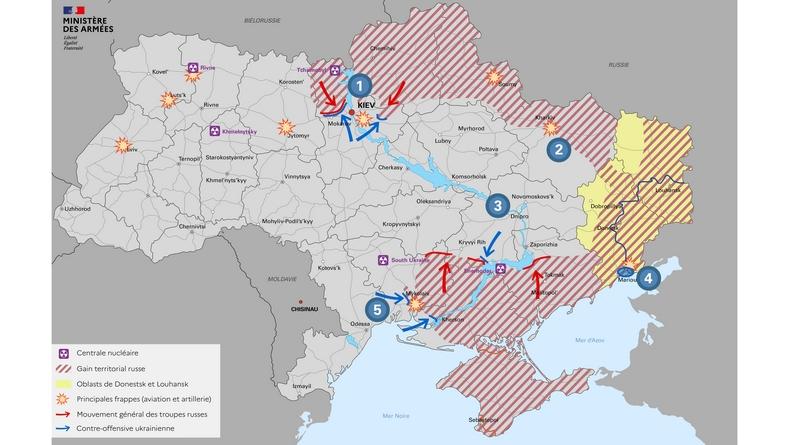Lavrov arrived in New Delhi at 8 PM local time, reportedly he came from meetings in Beijing.
UK's Liz Truss and Russia's Sergey Lavrov in India; Here's why these visits are crucial (republicworld.com)
Amid the ongoing Russia-Ukraine war, UK Foreign Secretary Liz Truss and her Russian counterpart Sergey Lavrov are in India to boost ties with New Delhi. Truss is anticipated to push Delhi to collaborate with other democracies to resist Russia's invasion of Ukraine by diminishing the country's reliance on Moscow.
Whereas, India is expected to be urged by Russia's foreign minister to circumvent Western sanctions and acquire more Russian oil and gas. It is worth mentioning here that India, while calling for a peaceful resolution to the Ukraine war, has not directly denounced the invasion and has abstained from voting in the United Nations.
Truss, who has spoken of a "network of liberty," is anticipated to tell her Indian counterpart, S. Jaishankar, that cooperation among democracies is critical in deterring aggressors, according to political analysts.
The UK Foreign Secretary said in a statement that the conflict in Ukraine had highlighted the need for increased security in the Indo-Pacific region and around the world, as well as tighter cooperation in areas such as defence, trade, and cyber-security.
Lavrov, on the other hand, will use his visit to press for closer trade ties to help mitigate the impact of Moscow's sanctions. Notably, India had agreed to acquire three million barrels of substantially discounted Russian oil earlier this month.
Importance of Truss' visit to India
During her visit, the UK foreign secretary will also announce a £70 million (over Rs 696.75 crore) investment in renewable energy development in India, which is one of the world's largest users of hydrocarbons. She will unveil a cooperative cyber-security programme aimed at defending both countries' online infrastructure against cyber-attacks. UK PM Boris Johnson and Prime Minister Narendra Modi agreed last year to improve ties over the next decade.
Western governments have chastised India for failing to take a firmer stance against Russia's invasion of Ukraine, and the UK is hoping for strong signals from Modi's government about its opposition to the invasion and support for the UN charter. US President Joe Biden recently described India's posture as "shaky." Truss sees the signing of a bilateral strategic cyber alliance with India as an indication of the two countries' determination to step up security cooperation.
Truss wants progress in negotiations to grow defence-related trade, especially innovative security technology, and strengthen defence connections with the world's largest democracy, according to the Foreign Office. "Deeper relations between Britain and India will strengthen security in the Indo-Pacific and globally, as well as create jobs and opportunities in both countries," Truss said before her trip.
In the Indo-Pacific, the UK and India will also agree to strengthen maritime cooperation. The United Kingdom will join India's Indo-Pacific Oceans Initiative as a main partner on maritime security problems, coordinating cooperation with key Southeast Asian partners. Since entering office, Truss has made it a priority to strengthen ties with India. This is her second visit as foreign secretary and third as a secretary of state in 13 months; she previously visited as trade secretary.
Truss is expected to argue that the current volatility in oil and gas prices, as well as concerns about energy security as a result of Russia's invasion of Ukraine, demonstrate the importance of India's green transformation and advances toward energy self-sufficiency, which UK technology can help accelerate.
Why is Lavrov's visit to India crucial?
India is largely reliant on Russia for arms sales, and Lavrov is said to be eager to persuade India to expand its purchases of Russian oil at a discount. The talks with Lavrov could possibly include the development of a rupee-ruble payment mechanism for bilateral trade between India and Russia, as a way to get around US sanctions.
According to Bloomberg, Russian central bank officials are expected to visit India next week to negotiate the payment system's features. India is also likely to emphasise the importance of "on-time delivery of various military gear" and "Russian S-400 missile system components."
As a result of the Western countries' sanctions against Russia, India is looking into a payment mechanism based on the ruble-rupee exchange. Keeping trade relations with Russia open not only benefits India economically, but it also allows India to preserve the option of nudging Russia away from China in the future. The western countries' enmity is currently fueling Russia's closeness to China.
In this regard, India is in a unique position to serve as a link between Russia and the West while also exposing China's geopolitical threat. As India's diplomacy matures in its foreign engagements, Sergey Lavrov's visit provides an opportunity for India to assert its position both to Russia and to the West, as well as to gain influence from its balanced stance.
[END REPORT]



